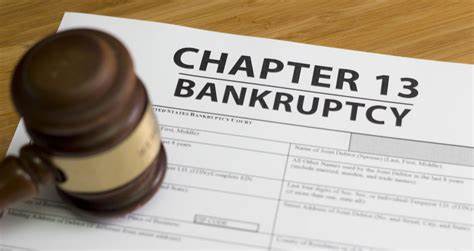Are you struggling with tax debts and wondering if filing for bankruptcy could be a viable option to get relief? In this article, we will explore the possibility of discharging taxes through bankruptcy and provide some helpful tips to navigate the complex process.

Understanding Tax Debt
The first step in determining whether tax debt can be discharged through bankruptcy is understanding the type of taxes owed. Specifically, income taxes may be eligible for discharge if they meet certain criteria including:
- The unpaid tax debt must have been due at least three years ago
- The taxpayer filed a legitimate return for the taxes and it has been on file with the IRS or taxing authority for at least two years.
- The taxpayer did not commit any fraud nor willful evasion related to their tax return.
Other types of tax debts such as property or payroll withholding taxes are generally not dischargeable via bankruptcy proceedings.
Filing Chapter 7 Bankruptcy
Chapter 7 Bankruptcy involves selling off assets under court supervision and then using that money to pay off creditors. If there is still any remaining balance left after paying all secured claims (e.g., car loan), priority unsecured claims (e.g., back child support payments), and administrative costs, then any remaining unsecured debts (e.g., credit card balances) can likely be discharged—including certain qualifying income tax liability.
However, even when meeting all the prescribed criteria, it’s important to note that there are often exceptions depending on each state/country’s jurisdictional laws; working
with an experienced lawyer who specializes in both taxation law AND bankruptcies is always recommended especially when navigating these complicated topics.
Filing Chapter 13 Bankruptcy
Alternatively, filers may opt instead for chapter 13 if they don’t want to lose their property/assets while still seeking relief from difficult-to-service IRS payment plans. This form typically requires creating a repayment plan over a three to five year period.
The repayment plan will provide the filer with more time and even flexibility when paying off their tax debts. An experienced Chapter 13 Lawyer is invaluable in constructing a feasible repayment plan, but always ensure that before embarking on this path, it’d be wise to weigh the pros and cons of filing chapter 13 bankruptcy versus other options available for you.
Conclusion
In summary, discharging taxes through bankruptcies can be possible in many cases– depending upon various factors such as type of taxes owed or state/country/region jurisdictional laws. Consult an experienced bankruptcy lawyer who specializes in taxation law for sound advice on exploring whether this option would work best for your situation. Keep in note that improper execution could leave one without relief from overwhelming tax debt so ensuring correct execution is critical.
FAQs
Can I discharge all tax debts in bankruptcy?
Answer: No, you cannot discharge all tax debts in bankruptcy. Only certain types of taxes can be discharged, such as income tax debt that is at least three years old and was properly filed. However, any liability associated with fraudulent or willful evasion of taxes, along with certain property taxes or payroll taxes may not be discharged.
What chapter of bankruptcy is most helpful for discharging tax debts?
Answer: Chapter 7 Bankruptcy is usually the best option for discharging some types of older and unsecured tax debt since it typically provides fast relief from unsecured debt without a repayment plan requirement.
Do I need a lawyer to discharge my tax debts through bankruptcy?
Answer: You don’t necessarily need a lawyer to file for bankruptcy or handle your case; however, consulting with an experienced attorney who specializes in this area can increase your chances of success given the complexities involved and unique nature of each case.
FAQs
**H3. What types of tax debts can be discharged through bankruptcy?**
Answer: Not all tax debts can be discharged through bankruptcy. To qualify for discharge, the taxes must generally be income taxes that are at least three years old, and the tax returns for those taxes must have been filed more than two years prior to filing for bankruptcy. Other types of taxes, such as payroll taxes, taxes associated with a property tax lien, or taxes that are not yet assessed, are typically not dischargeable.
**H3. How does the bankruptcy process work for discharging tax debt?**
Answer: The process of discharging tax debt through bankruptcy involves several steps. Debtors must meet certain eligibility requirements, such as those mentioned above, and they must also complete a number of other requirements, such as providing the tax authority with a copy of the bankruptcy filing and cooperating with the tax authority’s investigation of the debtor’s tax returns. The bankruptcy court will then review the case and may grant the discharge of the tax debt if the debtor has met all the requirements.
**H3. What alternatives exist for taxpayers who cannot discharge their tax debt through bankruptcy?**
Answer: For taxpayers who cannot discharge their tax debt through bankruptcy, there are other options to explore. These might include negotiating an offer in compromise with the tax authority, setting up a payment plan, or seeking help from a tax professional or financial counselor. These alternatives can be complex and may require significant effort and resources on the part of the taxpayer, but they can be effective ways to manage and reduce tax debt
